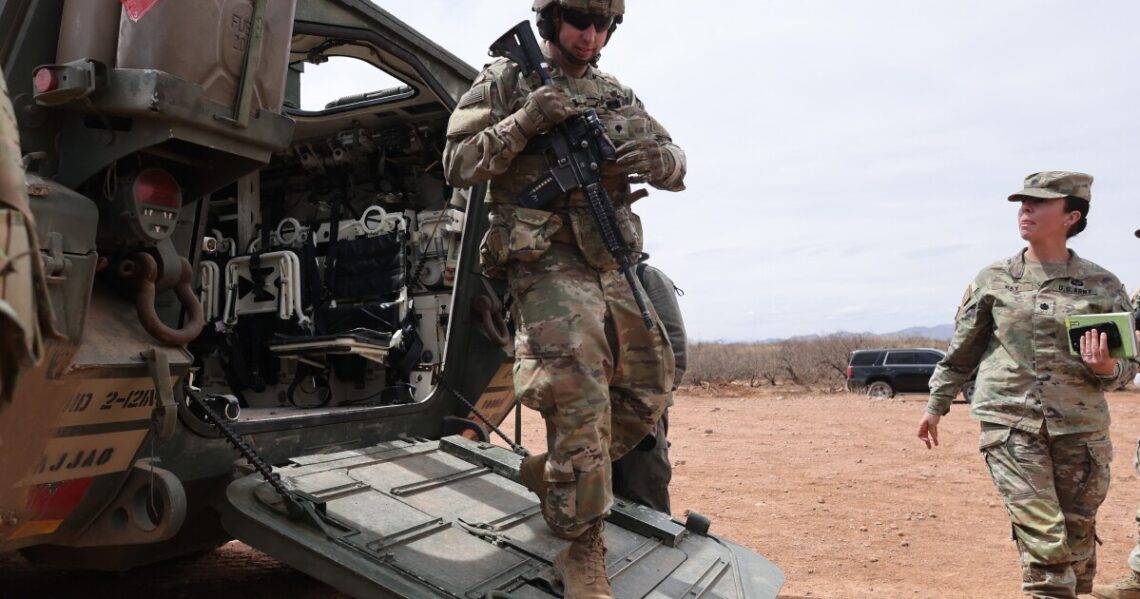As President Donald Trump expands the use of the military in immigration enforcement, this nearly 150-year-old law has come into sharp focus.
The Posse Comitatus Act was designed to limit the use of federal troops in law enforcement activities on American soil. The rule has its exceptions and loopholes, but Trump’s second term and his crackdown on immigration are shaping up to be a major test of the law.
Today, thousands of active-duty troops are deployed to the U.S.-Mexico border. What the military is allowed to do there has also dramatically shifted — going beyond the typical roles of supporting the Border Patrol.
Among the most significant developments came last month, when Trump designated a 170-mile stretch of federal land along the southern border — which spans through California, Arizona, and New Mexico — as a military installation, or a national defense area.
On Thursday, the Department of Defense announced that a second section in Texas will be marked as a military installation.
At least 82 people have been federally charged for “unauthorized entry” into the newly created National Defense Area in New Mexico as a result.
Here’s what to know.
What are the restrictions under the Posse Comitatus Act?
The federal law was enacted in 1878 following the Civil War, when former Confederate states were either unwilling or unable to enforce civil laws. In response, the federal government stepped in and deployed active-duty troops to maintain order. That led to concerns of potential military overreach.
While the law came after the Civil War, it’s rooted in one of the country’s founding principals — which is the rejection of military involvement in civilian affairs. The ideal was a key grievance in the Declaration of…
Read the full article here







